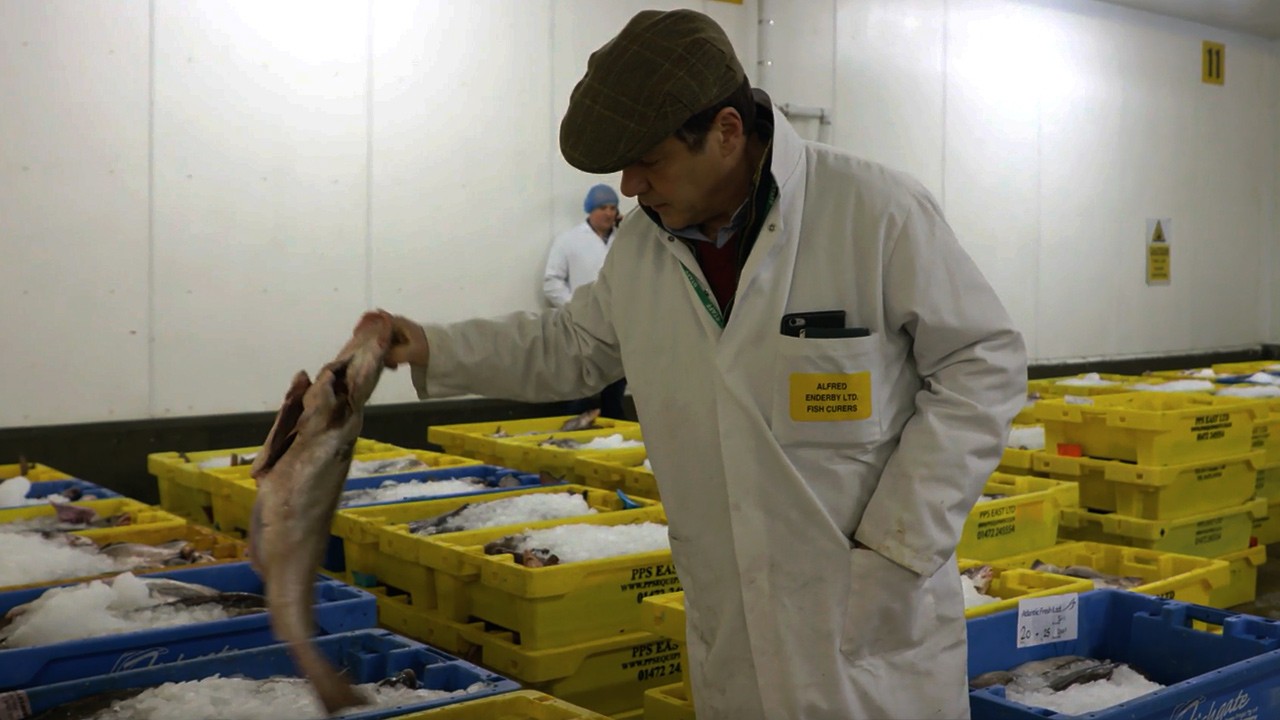Getty Images
Efforts to expose Moscow’s long-suspected meddling in the U.K.’s 2016 Brexit referendum gained substantial ground Sunday after a bombshell report in Britain revealed deep ties between the Kremlin and the Leave campaign — which also had significant links to the Trump election campaign.Investigations by the Sunday Times and the Observer newspapers revealed the Leave campaign’s biggest backer, businessman Aaron Banks, met with Alexander Yakovenko, the Russian ambassador to the U.K., at least three times in the months leading up to the vote to exit the European Union, and even invited him to a Brexit results party in Westminster.Banks also exchanged emails with the embassy and other Russian officials, including Alexander Udod, a diplomat who was subsequently expelled from the U.K. over the poisoning of Sergei Skripal and his daughter.Yakovenko is already on the radar of special counsel Robert Mueller, who is investigating Russian interference in the U.S. presidential election, after he was was named in the indictment of ex-Trump campaign aide George Papadopoulos.Banks, along with close friend and former Ukip leader Nigel Farage, was among the very first overseas political figures to meet Trump after his surprise victory in November 2016.It also emerged over the weekend that Banks passed contact information for Trump’s transition team to the Russians.Banks has strenuously denied any wrongdoing, claiming the Kremlin had no influence over the Brexit campaign. But previously undisclosed meetings and frequent emails between the Brexiters and Moscow suggest that Banks, along with his political colleague Andy Wigmore, who also sent emails and attended meetings, will have some difficult questions to answer when they appear in front of U.K. lawmakers Tuesday.Banks is a businessman who came to media attention in 2014 when he donated £1 million ($1.34 million) to the U.K. Independence Party led by Farage. But it was the £9 million he donated to two Brexit campaigns — Leave.EU and Grassroots Out — that brought him real notoriety.Banks owns an insurance company called GoSkippy and claims that the links to Russia revealed in the probe relate to his wife Katya, who is Russian.The emails detail the links between Banks and Russia in the lead-up to the Brexit referendum and its aftermath.Banks previously admitted to having one “one boozy lunch” at the Russian embassy with Yakovenko, but the emails show he met the ambassador on at least three separate occasions.It was also claimed that the ambassador introduced Banks to a Russian businessman who proposed a business deal to buy six Russian goldmines, with potential profits in the billions. The emails suggest Banks traveled to Moscow in February 2016 — at the height of the Brexit campaign — to meet with a Russian bank about the deal.The emails were first collected by Isabel Oakeshott, a former Sunday Times journalist who ghost-wrote Banks’ book “The Bad Boys of Brexit.” The writer says she didn’t realize the extent of the Russian connection in the emails until last year.She said she postponed publishing them because she wanted to include them in a new book she is writing about Russia’s use of “hybrid warfare” to influence British politics.The Observer got hold of the emails they claim through a third party. Oakeshott alleges they were stolen after her Dropbox account was hacked.Realizing the Observer had the scoop, she handed over the emails to her former employer The Sunday Times, who ran the story Sunday.Nigel Farage is already believed to be a “person of interest” to Mueller’s team, and his links to Banks could excite some interest in the businessman by the special counsel, especially the relationship with Yakovenko.Banks and Wigmore will come before the select committee for the Department for Digital, Culture, Media and Sport Tuesday, where they will face questions about the Leave campaign’s links with Russia, the source of the £9 million donation, and whether the Kremlin tried to sway the outcome of the referendum.“Russia is not our friend. And this new material raises questions of the most serious nature. If deals were brokered with Russian government help, it would raise urgent questions about Russian interference in our democracy,” Damian Collins, chairman of the committee, told the Guardian. Cover image: Donald Trump, right, invites United Kingdom Independence Party leader Nigel Farage to speak during a campaign rally at the Mississippi Coliseum on August 24, 2016 in Jackson, Mississippi. (Jonathan Bachman/Getty Images)
Cover image: Donald Trump, right, invites United Kingdom Independence Party leader Nigel Farage to speak during a campaign rally at the Mississippi Coliseum on August 24, 2016 in Jackson, Mississippi. (Jonathan Bachman/Getty Images)
Advertisement
Who is Aaron Banks?
Advertisement
What do the emails reveal?
Banks denies this trip ever happened, claiming he has stamps in his passport to show he only travelled to Russia in October 2014 and March 2015 to visit his wife’s family.
Where did the emails come from?
Advertisement
Why should Mueller care?
One of Banks’ meetings with Yakovenko took place on August 19, 2015 — the day Steve Bannon became Trump’s campaign manager and just days before Banks, Wigmore and Farage traveled to Mississippi for a Trump rally, where Farage was introduced to the crowd as "Mr. Brexit."The fact that Banks was in Trump Tower with Wigmore and Farage just days after Trump’s surprise victory could also raise suspicion, especially given that Banks met with his Russian contacts on his return to the U.K. after that trip.READ: Mueller reportedly wants Russia investigation witnesses to hand over their phonesWhile a lot of attention has been given to Banks passing at least one phone number of the Trump transition team to the Russians, given that Mueller’s investigation is probing deep ties between the Trump campaign and the Kremlin it is unclear why Banks would have to pass on such small details.
What happens next?

